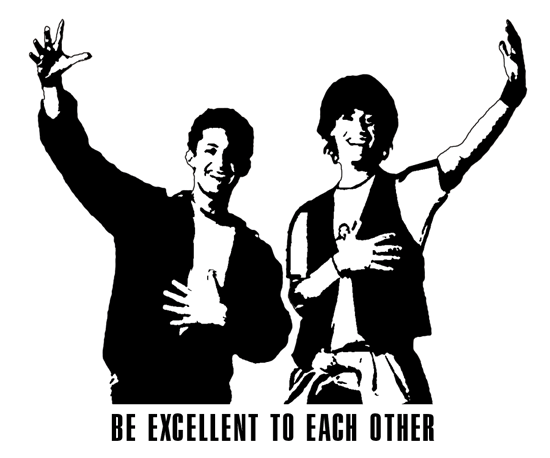Short version: We tried that, but it doesn't scale. Eventually the one person self-nominated as the sole arbiter of 'good behavior' can't keep up with everyone and has to delegate. When that happens, their subjects start complaining about inconsistent rules and their enforcement.
An extensive, written code allows people to have a chance of living up to that expectation, and understand what'll happen when they don't. This is especially important for volunteer-run organizations who don't have professional, paid enforcers.
Long version
The legal code is just that: code.
Worse, it's a code that is interpreted, not compiled, and how the lines are translated into actions changes a little every time you run through them. Any time the Supreme Interpreter issues a ruling on something, whole swaths of that code will be subject to new interpretations, which will have unpredictable side-effects. Side-effects that will trigger new code to try and handle the edge-cases.
The legal system as it exists in most countries is extensive, written, and impossible for one person to fully understand. This is why lawyers are hated, the legal system seems arbitrary, and anything fun always seems to be illegal. And if that wasn't enough, case-law is its own unwritten thing that handles edge-cases in the lack of a written code. It's no wonder we hate extensive codes of behavior.
That said, there are very good sociological reasons why a code-of-conduct like:

Is a bad code. Take, for example, a basic value judgment:
Murder is bad, and will be punished.
Pretty obvious, and common-sense. And unlike 'be excellent', is narrower in scope. And yet.
Is killing someone accidentally while driving still murder?
Is killing someone in self-defense in your home still murder, or something else?
What is the exact punishment for murder?
Do you punish accidental murders different than intentional ones?
Do you punish killers-of-children different than killers-of-adults?
And so on. This is how we end up with ideas like 'manslaughter' and many grades of murder, with different punishments for each. Without those umpty-hundred pages of legalese defining everything, the answer to all of the above questions would be in case law, which is inaccessible to most non-lawyers.
Short codes: Easy to understand in general. But the specifics of what it means to me are completely opaque.
Long codes: Hard to understand in general, but are much more discoverable. If I need to know what it means to me, I can find out.
Nation-states have converged on the long code for very good reasons. But what about volunteer-run organizations like SF conventions, tech-conferences, and open-source projects?
People are hard, let's just party.
Unlike nation-states, volunteer-run organizations like these aren't big enough or well funded enough to have a professional enforcement arm. Relying on peer enforcement is unavoidable, as is relying on untrained people for adjudicating misconduct. These projects can and will attract people quite willing to be enforcers, and are generally the kinds of assholes we want to avoid. The people running these things almost to a person want to avoid conflict, or as it's sometimes called, DRAMA.
If one of your goals is to provide a fun place to code, party, or discuss contentious genre issues, you need a way to bounce the assholes.
Bouncing an asshole is conflict, that thing everyone wants to avoid. When the conflict becomes egregious enough to be officially noticeable, Responsible People tend to respond in a few negative ways:
- Pretend they didn't see it, in the hopes one of the other Responsible People will notice and do something.
- Talk themselves into thinking that it wasn't as bad as all that.
- Pretend they're not actually a Responsible Person, and hope the complainer doesn't notice.
- Officially notice, but wimp out on actually causing displeasure in the complainant.
- Hide behind a committee, most of the members of which will be doing one or more of the four previous points.
If you have a "be excellent" code of conduct, point number 2 is where all the Official Drama will go to die; leaving a whole bunch of 'petty highschool bulllshit' to get in the way of the coding, party, or genre discussions. You will have assholes among you, but that's better than being the specific person who ruined someone's day (even if they are an asshole).
If you have a written code with if this BAD then that HARM in it, it allows the drama-avoidant Responsible Person too look at it and say:
Oh shit, this totally applies. Fuckity fuck fuck.
And actually do something about it. Which means, as it was written down, they know what that 'something' is. They may still try to pretend they never saw anything and hope someone else does, but having it written down makes it more likely that the next Responsible Person will do something. It also means that the committee meeting is much more likely to act in consistent ways, and maybe actually bounce assholes.
This is why we keep pressing for details in those codes of conduct. It allows the Responsible People to hide behind the policy as a shield to deflect the displeasure of the punished, and actually provide meaningful direction for the culture of the volunteer-run organization. You deserve that.